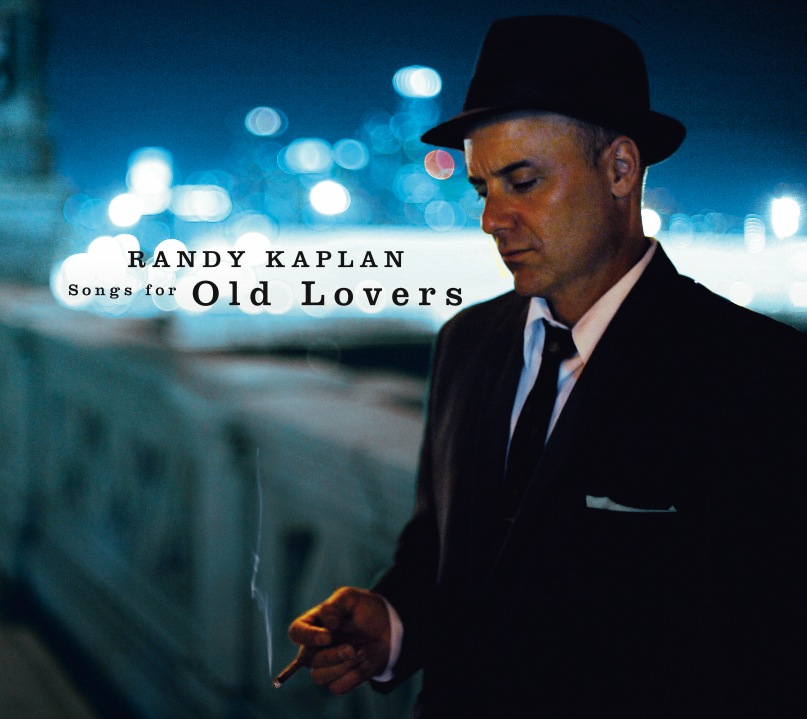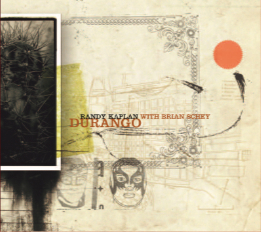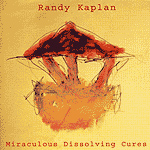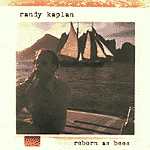
|
| ||||||||
| Adult Recordings | ||||||||
| Click on an album to listen to tracks, find out more information, and/or to purchase. | ||||||||
|
Details about Randy's Adult CDs:
“SONGS FOR OLD LOVERS (2011), is a true concept album which pays tribute to some of the earliest concept albums in American pop music history. Randy’s original compositions are responses to songs from the 1930s and 40s, standards recorded by the likes of Frank Sinatra, Peggy Lee, Chet Baker, and Nat King Cole… There are nods to the songwriting styles of the day throughout, both harmonically and lyrically… Producer Mike West usually works with Randy in a bluegrass/country/folk/blues idiom. But, as evidenced here, these guys can do anything!” (from the liner notes by Montague Z. Young) As AMERICANAS-UK notes, "many of the songs here are melodically almost indistinguishable from some of the stuff churned out by Tin Pan Alley in the first half of the Twentieth Century, replete with touches of vaudeville and lounge-jazz, the philosophy on which the songwriting is based is an outright subversion of the form. Indeed, songs like 'Let's Not Fall In Love' and 'Hard To Love' are outright rejections of the values which such songs typically expressed." The cover of the record features Randy posed as Sinatra on the cover of his "In the Wee Small Hours."
DURANGO (2008), a collection of 11 songs Randy co-wrote with Brian Schey over the past two decades, was released in November 2008. The record is bookended by two jazz/pop piano-based songs, the title track and "No Matter What" (which also appeared on the CD REBORN AS BEES in 1999). There are also skewed rock anthems, Mexican surf numbers, and cabaret-influenced ballads. Brian Schey is an accomplished composer, arranger, and producer who has toured the US and Europe as a bassist with, among others, Dan Bern and Great American Taxi. Randy and Brian have worked together in many styles, from rock to jazz to musical theater.
ANCIENT RUINS (2007) contains several bluegrass numbers - fiddle, banjo, guitar, upright bass and all- but there's also the trademark Kaplan unorthodox ballads and curiously anthemic rock songs. Along with his ten originals, Kaplan covers Nirvana's "On a Plain", Prince's "I Could Never Take the Place of Your Man", and Grandmaster Flash's "The Message" (transforming this old school rap classic into a bluegrass barn burner).
For his CD PERFECT GENTLEMAN (2004) Randy amassed a collection of cheap yard-sale organs. He used their built-in drum samples to create rhythm tracks; he then utilized these rock, jazz, waltz, swing, bossa nova, dixie, cha-cha, and rhumba beats to fashion songs ranging from simply-structured folk and country ballads to torch songs, lampoons, spirituals, and satires. By editing, manipulating, and overlapping the beats from these various 1970's organs Randy transformed the crude and kitschy samples into more polished and developed sounds. At times, though, he just placed a sound 'as is' into a new context. The characters who inhabit these songs often seek to gain mastery over their chronic pathologies, or at least to acknowledge them. These characters include an anti-prophet who asks only that he be given as big a funeral as Jesus and Moses, an overweight middle-aged man who carries around a picture of his shirtless teen-aged self in order to lure women, the ghosts of Edith Wharton and Alexander Hamilton, a trucker driven to prostitutes by southern evangelical radio preachers, and the first human on earth (the hermaphrodite, Eve).
MIRACULOUS DISSOLVING CURES (2001) is a musically rich collection of threnodies and noiresque tales that find Kaplan battling the forces of love and loss as well as the hypocrisy of both the secular and religious worlds. In "Crushed Berries" the narrator laments that his "friends will save a fly from a spiderweb but then they'll order rack of lamb or baby back ribs." In "Volunteers" the ghost of Job's wife rails against G-d for letting her children die "because of some bet, some stupid bet." "Cutty Reel" is the dreamscape of a jilted degenerate; in an attempt to win back his beloved, he tries to buy a voodoo doll of her but finds that they're "all sold out." Stylistically, the record ranges from the quasi-Latin beat of "Crushed Berries" to the hint of electronica in "The Girl Who's Done It All" to the irresistible mix of synthesizer and Spanish guitar throughout "Unpaid Bills". There's also a full-color 12-page CD booklet featuring abstract paintings (by Yasmina Palumbo, Leila Hamilton, Masha Solomon, Lucille Dreyblatt, and others) juxtaposed to the words for each song. MDC was recorded by Colin Mahoney in Lawrence, Kansas. The record also features Brian Schey on bass and Bradford Hoopes on keyboards.
In 1999 Randy released two albums simultaneously, REBORN AS BEES and LAKE CHAMPIONS. Both were recorded at Z'gwon,th Studios in Lawrence, Kansas by Colin Mahoney, who also played drums. BEES was created as a tribute to Randy's father, who died in an automobile accident in the summer of 1997, and as an investigation of grief and hope. It is an eloquently dark and sometimes angry record but it is also universal in its hard-driving and melodic psychological study of loss, unfulfilled love, and the struggle to find second chances. Backed up by a full band, Kaplan opens the album quietly and gently with cautious hope in his voice: "I know the end is near but so is the beginning". He sings about unanswered prayers in "Deaf Ears", of a numb rebounding in "No Matter What", and with paranoid and helpless rage in "Many Times Over" and "Great Disguise". REBORN AS BEES, whose title comes from a Chasidic saying via Martin Buber, is a true concept album- a profound, gallant, and mystical work.
LAKE CHAMPIONS was recorded during the REBORN AS BEES sessions. On a day when Randy didn't feel like working on BEES, he sat down with his guitar and recorded eight songs. He sent the demo to his anarchivist Scott Bernstein who decreed that it must be made into an official album. Randy sat down one more time and recorded eight additional songs. This eclectic record has just about everything: torch songs, ballads, and tales; hope, love, and despair. In "Drunk As Can Be" a southern boozer tries to extricate himself from an addictive relationship. In "I Didn't Buy It", a sympathetic cad second-guesses himself and his dearly disposed. The narrator of "Gold" enjoys requited and true love while in "Robinson Crusoe" a man with a strong sense of entitlement tries to lay down the rules for a lopsided affair. In "Next To You" a woman makes her lover feel like Humbert Humbert and Jack the Ripper. A man visits the seedy bars of his old neighborhood in "Standard Time Chop" and, repulsed, is filled with domestic yearnings. In "G-d's song" a gentle, forthright, practical, and insecure G-d revises his commandments - eliminating circumcision, easing the strictures on sexuality, condoning drug use, and admitting that even He isn't quite sure of what's going on. LAKE CHAMPIONS is a personal and intimate album that touches on all the trademark Kaplan subjects.
In early 1997, Randy recorded BOYISH HIPS at his friend Scott Bernstein's Hollywood apartment on his Tascam 4-track cassette recorder. On the record, his first CD, Randy used guitar, harmonica, piano, Fender Rhodes, and pots & pans as percussion instruments to orchestrate a joyful, Caribbeanesque sound. This deceptively light collection of songs includes "Slow Eater", in which a man denies being a binger and instead blames others for eating too slowly and too sparsely. In "Everyone I See", a man employs skewed logic to defend his inability to commit himself to one woman. "Coach Joe" tells the story of the life and death of a sexual predator. In "Ten Page Letter", a woman demands "action not words" from a man who can do nothing about his feelings but express them in letters. "Send For Our Stuff" is both a love song and a tribute to the naive beauty of Los Angeles (where Randy lived for eight years), seen here as a place where one's innocence may be renewed. The confessional poem "Live Tigers" is set to piano and nylon-string guitar music for the record's final track. This experimental album is full of lyrical and emotional minefields and fraught with neurotic wit, unbridled perplexity, and desperate passions. The narrators of these songs have insatiable cravings for sex, food, love, and, sometimes, self-destruction.







